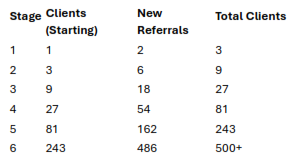Unveiling Google's Gemini AI: A Thoughtful Leap in Artificial Intelligence
- Adam Wyrill
- Dec 8, 2023
- 2 min read
Introduction: In the ever-evolving landscape of artificial intelligence (AI), Google has once again taken a significant step forward with the introduction of its latest creation, Gemini AI. Google claims that Gemini AI "thinks more carefully," sparking curiosity and excitement within the tech community. In this blog post, we'll explore what sets Gemini AI apart and how it compares to other AI tools on the market. Understanding Gemini AI: Google's Gemini AI is designed to exhibit a higher level of cognitive reasoning, leading to what the tech giant describes as more thoughtful decision-making. This development suggests a departure from traditional AI models that often rely on pattern recognition and statistical algorithms. Key Features of Gemini AI:
Contextual Understanding: Gemini AI is engineered to grasp context more comprehensively. It aims to understand not only individual data points but also the relationships and dependencies between them, fostering a more nuanced comprehension of complex scenarios.
Adaptive Learning: One of Gemini AI's standout features is its ability to adapt its learning process dynamically. This adaptability enables the model to refine its decision-making over time, learning from both successes and failures in a continuous feedback loop.
Ethical Considerations: Google emphasises that Gemini AI is designed with ethical considerations in mind. This includes a heightened awareness of potential biases in data and decision-making processes, contributing to more responsible AI use.
Comparing Gemini AI to Other AI Tools:
Versus Traditional Machine Learning: Gemini AI represents a departure from the more rigid frameworks of traditional machine learning. While conventional models excel in specific tasks, Gemini AI's emphasis on contextual understanding and adaptive learning positions it as a more versatile and dynamic solution.
Against Neural Networks: Neural networks, the backbone of many AI systems, often lack explainability and transparency. Gemini AI's commitment to careful thinking implies a more interpretable decision-making process, potentially addressing concerns related to the "black box" nature of neural networks.
Human-Like Reasoning: Gemini AI's claim to "think more carefully" suggests an aspiration to emulate human-like reasoning. While it may not reach the complexity of human cognition, this focus on thoughtful decision-making could pave the way for AI systems that align more closely with human values and intentions.
Conclusion: As we delve into the era of advanced AI, Google's Gemini AI emerges as a noteworthy addition, promising a more thoughtful approach to problem-solving and decision-making. While its practical implications and real-world performance are yet to be fully realised, the emphasis on contextual understanding, adaptive learning, and ethical considerations positions Gemini AI as a frontrunner in the evolving landscape of artificial intelligence. Keep an eye on this space, as Gemini AI may well be the catalyst for a new wave of AI applications that prioritise careful thinking and responsible use.

Comments